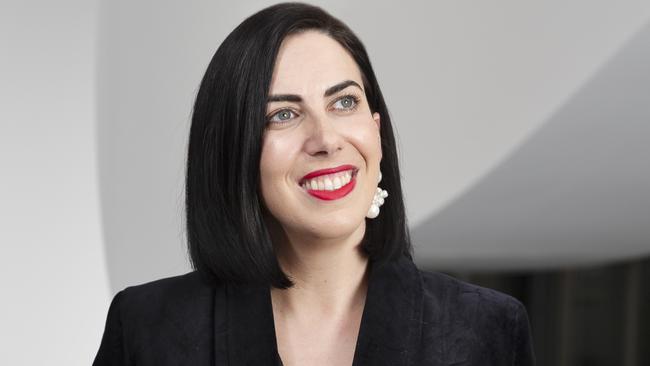‘Rock star’ poet lends her voice to the vagaries of suffering
Sarah Holland Batt awarded $100,000 Judy Harris Writer in Residence fellowship at Sydney University’s Charles Perkins Centre.

How does it feel to love somebody and know they wouldn’t want to live the way they do?
“It’s not as simple as you think, to answer that question,” says the Australian poet, writer and critic, Sarah Holland-Batt, 38.
“My father had Parkinson’s disease for a long time. Many times, when he was well, he told me he would not want to live the way he lived towards the end of his life.
“Then when he died, there is still such a complicated sense of loss,” she said
Dr Holland-Batt, who writes the wildly popular Poet’s Voice column for The Weekend Australian’s book pages – nobody, but nobody, gets more mail – has been writing poetry about her father’s experience for some years. She now has the means to explore further, having on Monday been awarded the $100,000 Judy Harris Writer in Residence fellowship at the Charles Perkins Centre at the University of Sydney.
Dr Holland-Batt is the first poet to receive the award, which comprises a year-long residency, a $100,000 grant, and access to the university library and to clinicians at the Charles Perkins Centre, which conducts research aimed at easing the burden of diabetes, obesity, cardiovascular disease, and related conditions.
“As a poet, you write from life,” Dr Holland-Batt said. “My father’s illness was a big part of my life for a long time.
“People think they know Parkinson’s: it’s an unsteady gait, and a tremor, but watching dad, it can actually change a person fundamentally.”
Tony Holland-Batt, 82, died in March 2020 “just before lockdown. He had the best of care, a good death, as it goes.” They did not have to conduct “goodbyes by iPad” as so many other families did. But the Holland-Batt family’s experience of aged care was traumatic. Dr Holland-Batt testified on her father’s behalf at the Royal Commission into Aged Care Quality and Safety.
Before his death, she also wrote a poem, The Gift, for The New Yorker, containing these lines:
“Today my father is disconsolate.
I’m having a bad day, he says, and tries again.
I’m having a bad year. I’m having a bad decade.
I hate myself for noticing his poetry – the triplet
That should not be beautiful to my ear
But is.”
Dr Holland-Batt said: “Poetry can help foster empathy and understanding towards older people. Most people are moved by stories such as my father’s, yet they still can’t conceive that it could happen to them.
“A poem is something you can read in one sitting – it can provide a moment of calm contemplation, a little escape. And it can bring you into closer contact with the lives of others, including those whose experiences may initially seem distant from your own.”
The Judy Harris Writer in Residence fellowship is awarded annually to a distinguished Australian writer who proposes a new major work that explores themes of relevance to the mission of the centre.
Dr Holland-Batt is something of a rock star in poetry circles. She holds a first-class honours degree in literature, an MPhil in English and a PhD from the University of Queensland; and an MFA in Poetry from New York University, where she was the W.G. Walker Memorial Fulbright Scholar from 2010 to 2011.
She has been awarded an Asialink Literature Residency, a Chateau de Lavigny Fellowship, a Hawthornden Fellowship, and the Australia Council Literature Residency at the B.R. Whiting Studio in Rome, among other honours.
She is currently on sabbatical from The Australian but will return with her Poet’s Voice column in due course.




To join the conversation, please log in. Don't have an account? Register
Join the conversation, you are commenting as Logout